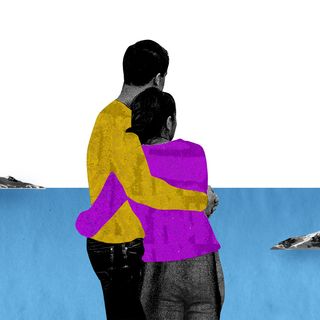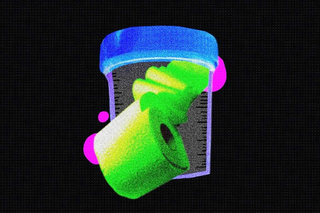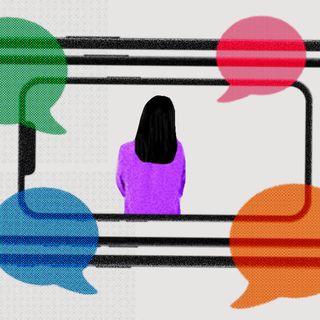
‘Stool Banks’ Can Help Fecal Transplants Treat Illnesses, Study Suggests
Collecting stool samples from people when they’re younger and healthy can help with a transplant procedure used to replenish gut bacteria.

Fecal transplantation is exactly what it sounds like — the process involves transferring stool from one individual into the gastrointestinal (GI) tract of another, to treat a health condition that the recipient has. The procedure works because it helps replenish gut bacteria that are lost to antibiotics or are otherwise compromised in the recipient.
There’s another way to make use of this in case there is any incompatibility between the donor and the recipient. In a process called autologous fecal microbiota transplantation (FMT), scientists take a person’s own stool from when they were healthier and younger. The stool is used at a later time to be transplanted back into their bodies and help restore the gut microbe balance. And according to a new study, these self-transferring fecal transplants can help us if we begin to invest in “stool banks” — an inventory of sorts to collect stool samples from everyone while they’re young and healthy as a matter of procedure.
Published on Thursday in the journal Trends in Molecular Medicine, the research underscores the understated benefits of fecal transportation in gut health. Gut microbes are essential for our healthy survival, but the environment and pace of modern life alter the delicate composition of these bacterial communities in our GI tracts almost irreversibly, the study notes.
Currently, fecal transplantation is used to treat C. difficile colitis — a complication arising out of antibiotic treatments that kill off “good” gut bacteria. Until recently, this was the only condition for which fecal transplantations were somewhat routine procedures. But having someone else donate their stool presented its own set of problems. It is already hard to find the right donors for organ transplantations. Moreover, fecal transplantation also requires alignment of cultural factors in addition to the biological ones for it to actually work. “Rewilding the human gut microbiome by transplanting the whole gut microbial community from donors in nonindustrial societies may result in a dramatic mismatch between our industrial environment/lifestyles and the ancestral microbiome,” the study authors write.
The idea of having people “bank” their own stools to protect their future selves is thus a novel one. “Autologous FMTs have the potential to treat autoimmune diseases like asthma, multiple sclerosis, inflammatory bowel disease, diabetes, obesity, and even heart disease and aging,” said study co-author Scott T. Weiss from Harvard University.
Essentially, we would be investing our resources into a “microbial Noah’s ark” — not only to treat present ailments, but also to preserve a record of the constantly evolving story of our gut microbes as the environments we live in continues to change.
Related on The Swaddle:
Researchers Find Gut Bacteria Behind Crohn’s Disease, Offering Target for Better Treatment
“Conceptually, the idea of stool banking for autologous FMT is similar to when parents bank their baby’s cord blood for possible future use… However, there is greater potential for stool banking, and we anticipate that the chance of using stool samples is much higher than for cord blood,” systems biologist Yang-Yu Liu from Harvard University, who was also involved in the study, added.
The history of FMT, moreover, was traced all the way back to the 4th century, and is now being studied for applications outside conditions involving the gastrointestinal tract. For instance, emerging research suggests that the disruption in gut microbe constitutions in our bodies can lead to other serious conditions in the long run — including some cancers and cardiometabolic diseases, according to a 2021 study.
There are also other concurrent studies documenting the ever-increasing threats to our gut microbes; some highlight their critical importance to our overall well-being. A recent paper showed how city-dwellers may have lost half their gut microbes; another indicates that Westernization is impacting gut microbe diversity. Moreover, many debilitating diseases like ulcerative colitis have been linked to missing microbes in the gut.
Fecal transplants — especially autologous ones, then — can step in to reverse some of the damages we incur to our gut bacterial communities as a result of exposure to harmful environments.
But the researchers are careful to point out that the process cannot be used to treat autoimmune conditions with early life disruptions to the gut microbiome, or anything with a genetic predisposition, such as Crohn’s disease.
Still, such an initiative could “protect the long-term health of humanity,” the scientists write. Stool banks for people to donate to others do already exist; the researchers recommend repurposing them to accommodate stool samples for autologous FMTs in the future.
But simply preserving the samples is not the end of the story. “Other synergetic strategies (e.g., diet intervention and lifestyle change) might have to be taken simultaneously with autologous FMT to minimize environmental differences between the time of stool sample collection and that of autologous FMT to further enhance engraftment and improve the efficacy of autologous FMT.”
Rohitha Naraharisetty is a Senior Associate Editor at The Swaddle. She writes about the intersection of gender, caste, social movements, and pop culture. She can be found on Instagram at @rohitha_97 or on Twitter at @romimacaronii.
Related


Early Human Ancestors May Be 1 Million Years Older Than Scientists Previously Thought
